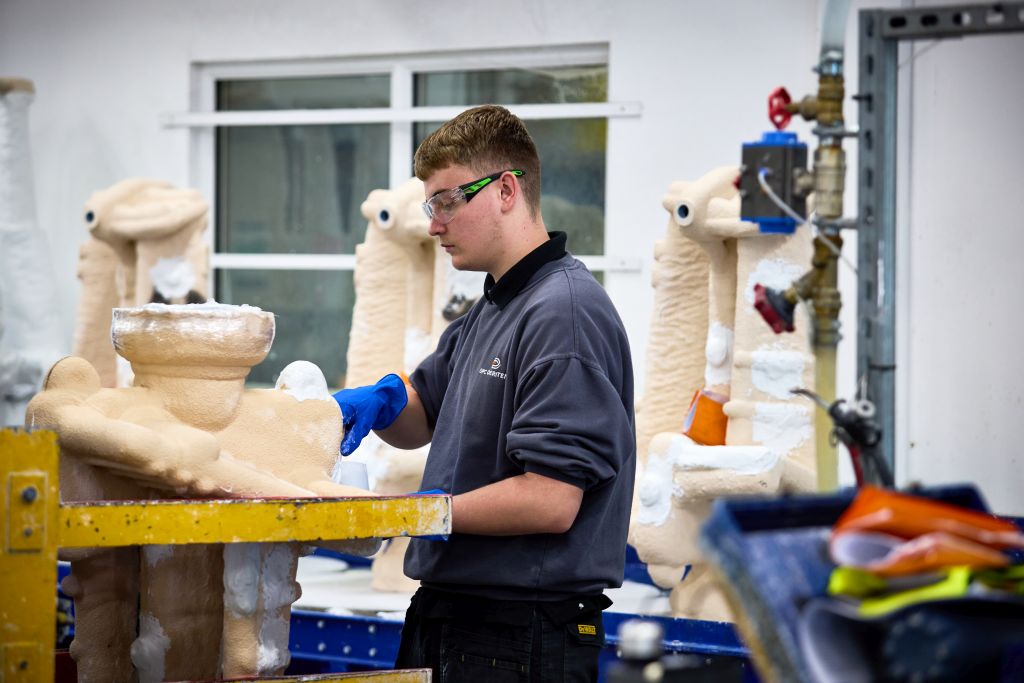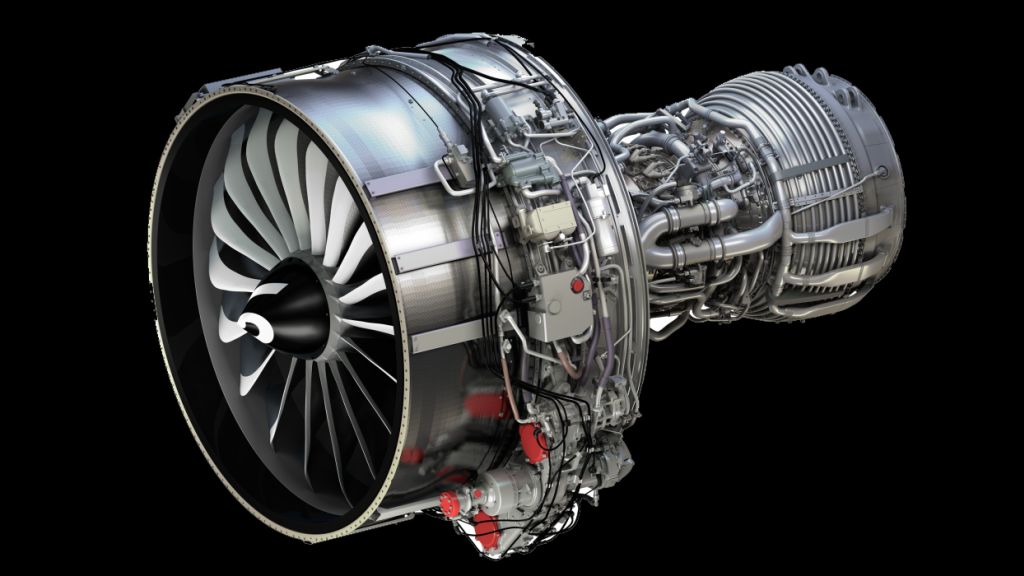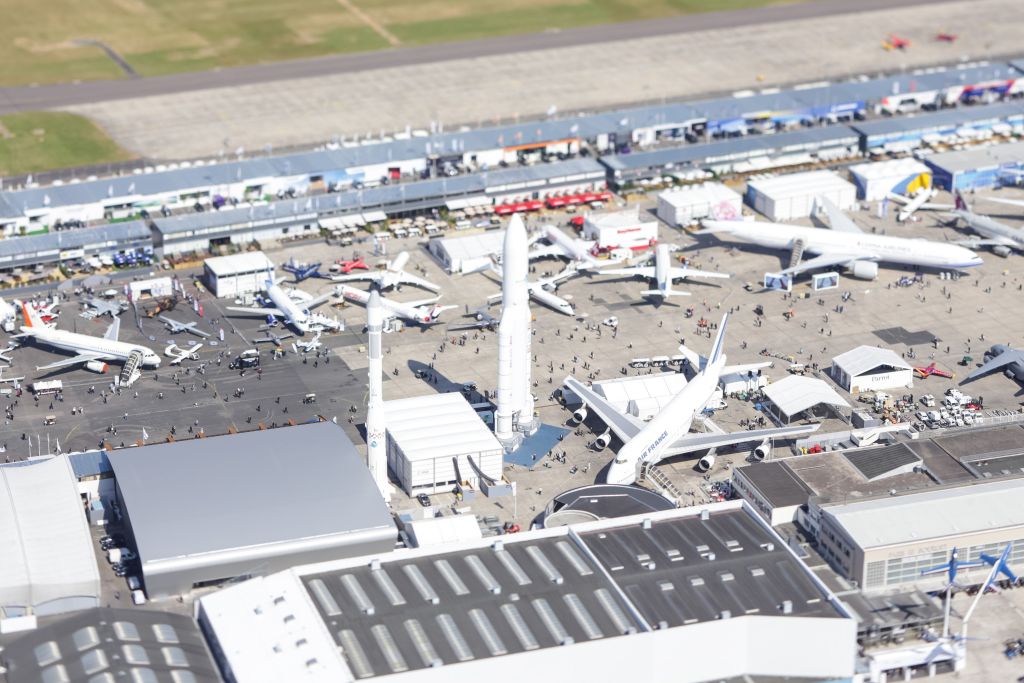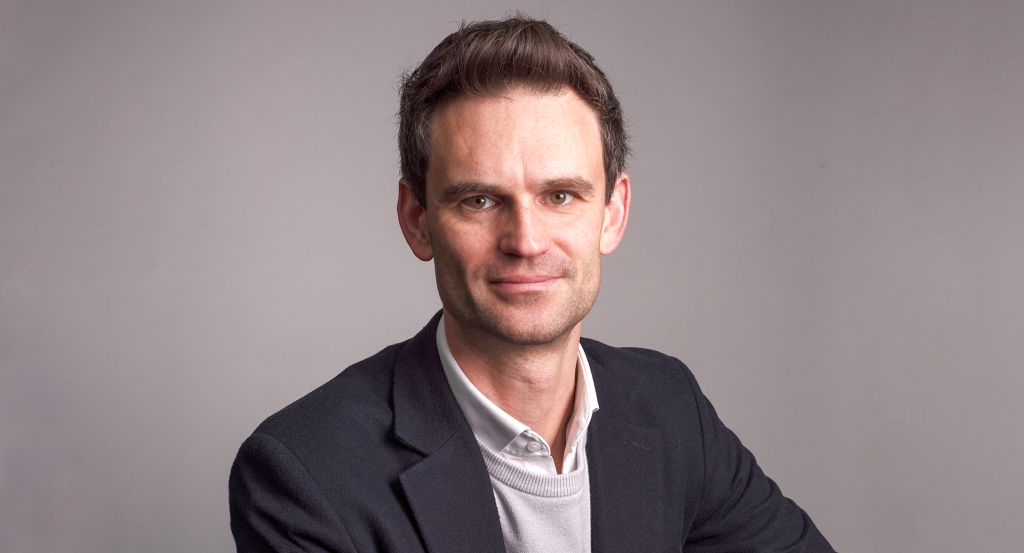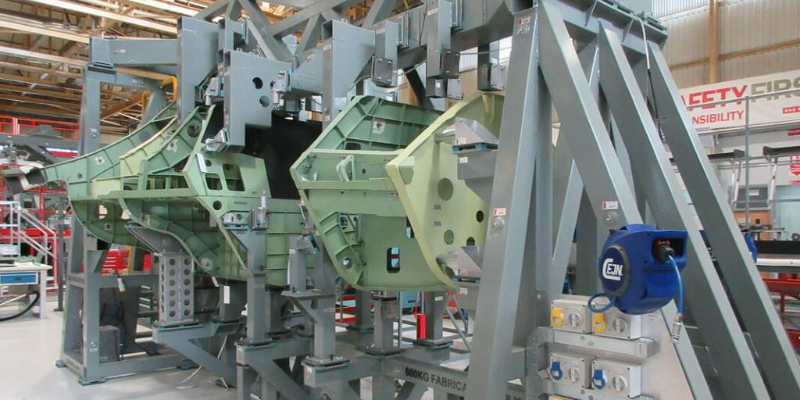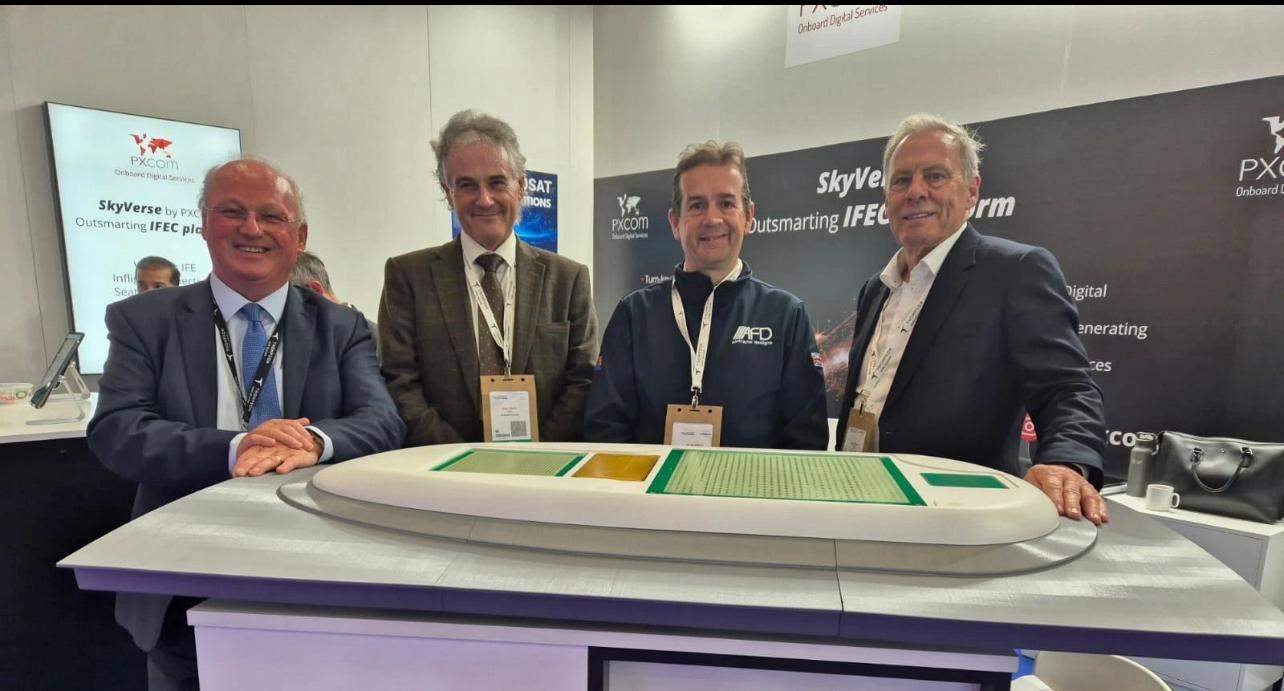
It’s a new way of life
17th Oct 2023 | In News | By Mike Richardson
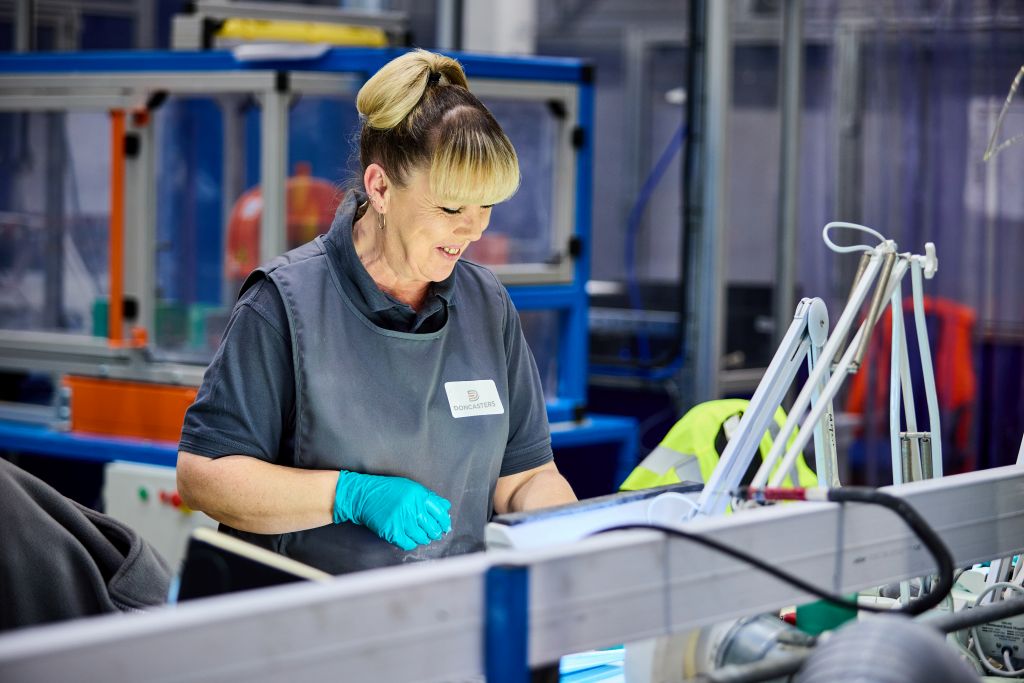
As Aerospace Manufacturing discovers, continuous improvement is not just a project but a way of life, forming part of everything a company does. With CEO Mike Quinn at the helm, the only way is up for precision castings and superalloys specialist, Doncasters Group.
Business is going from strength to strength for the Doncasters Group. With the aviation industry in ramp up mode, the company says it is meeting this demand by initiating even more investment in its capabilities.
Doncasters has just completed a new facility in India and is awaiting final approval so it can take occupation. The company is now working on the CapEx for the first production line there, which is going to focus on medical, aerospace and IGT. Doncasters is also looking at a new facility in Hungary and awaiting final approval from the country’s government. This facility will add capacity to Doncasters’ IGT plants in Europe.
Over the next 12 to 24 months Doncasters says it will be experiencing significant expansion. It recently broke ground on a major facility expansion in Groton, Connecticut. This is in construction now and is due to be fully operational in the second half of 2025. There’s lots of moving pieces and clearly it’s very exciting for the company as it continues to focus on significant footprint growth. It seems like a good time to talk to company CEO, Mike Quinn.
Q: What's your personal vision for continuous improvement at Doncasters and how will it impact the business?
I'm a big believer in continuous improvement. As part of our quarterly review schedule, there's a focus on doing things better every day. We have particular focus on how we improve our variable cost, how we improve our fixed cost, how we improve productivity, how we reduce scrap and improve quality. This is becoming a way of life across the business, under the umbrella of the Doncasters Production System.
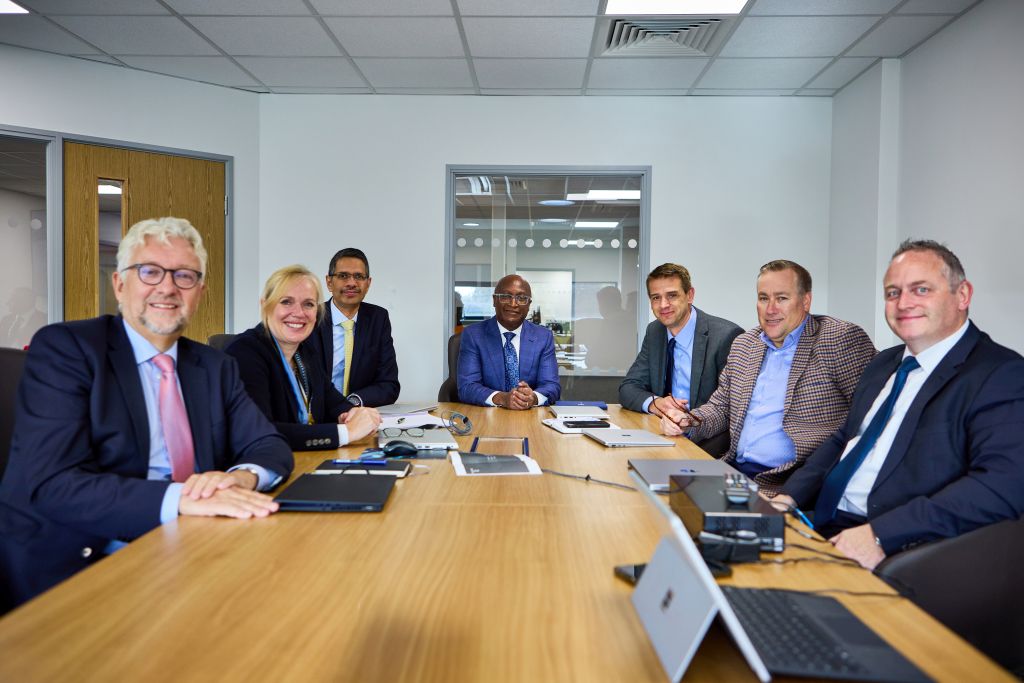
I would say we're fairly well advanced in the US. We have Continuous Improvement bronze, silver and gold awards. Some of the sites are now at bronze level and a couple of sites are heading towards silver. We’re a little bit further behind in Europe, but we’ll catch that up over the coming months. The template is there and we're starting to see significant results out of the sites that have embraced it in the US.
We're an integrated management team; a visible management team. For example, I’m in the US every month. Everybody’s pulling in the same direction. We have a strategy out to 2025 and we're all aligned with that.
Q: What was the major thing you wanted to change when you first joined?
There were lots of things we needed to change. We had to renew our equipment, and the facilities were all under-invested. We had to renew our people. We've hired some great people over the last three years since March 2020. We continue to hire great people and we're attracting top talent now.
The third pillar we wanted to concentrate on was our IT infrastructure which was very poor. We've invested heavily in a new global ERP system and the first site goes live on 2nd January 2024 with all sites being completed by December 2025. This will be a game changer for our business.
Under that umbrella of the renewal theme, I think we've done a decent job. We're not all the way there yet. We’ll continue to focus on this out to 2025, and we're well on the way.
Q: What is ‘the Doncasters Way’?
As mentioned, we have the Doncasters Production System. This is a complete standardisation of how we run our business. Every facility is run the same way, we track the same metrics and people are held to the same targets. There's accountability in our organisation. We're trying to foster a spirit of excellence, wanting to be the best, trying to do things better every day, and that's really what we're about.
We live it from the top. We want to be the best every day. Everywhere the executive team go, we reinforce that message to site teams. Site leadership teams are aligned to that. It’s great. We're involving our workforce in those discussions, be it from health and safety, be it through customer delivery and the focus on operational metrics. We run Kaizen events with everyone, involving everyone in the organisation including the people who work on the factory floor.
So, it's the full might of the 3,000 plus people in Doncasters driving this continuous improvement.
Q: What are the challenges in embedding this continuous improvement and supply chain integration across the business?
I suppose the first thing is that it didn't exist three years ago; this is a new programme. We've had to build our continuous improvement teams in the US and Europe. Following the acquisition we made last year, purchasing new facilities in China, India and Mexico, we’ve yet to get to these in terms of the Doncasters Production System roll out. We've had to use some of these resources for other projects.
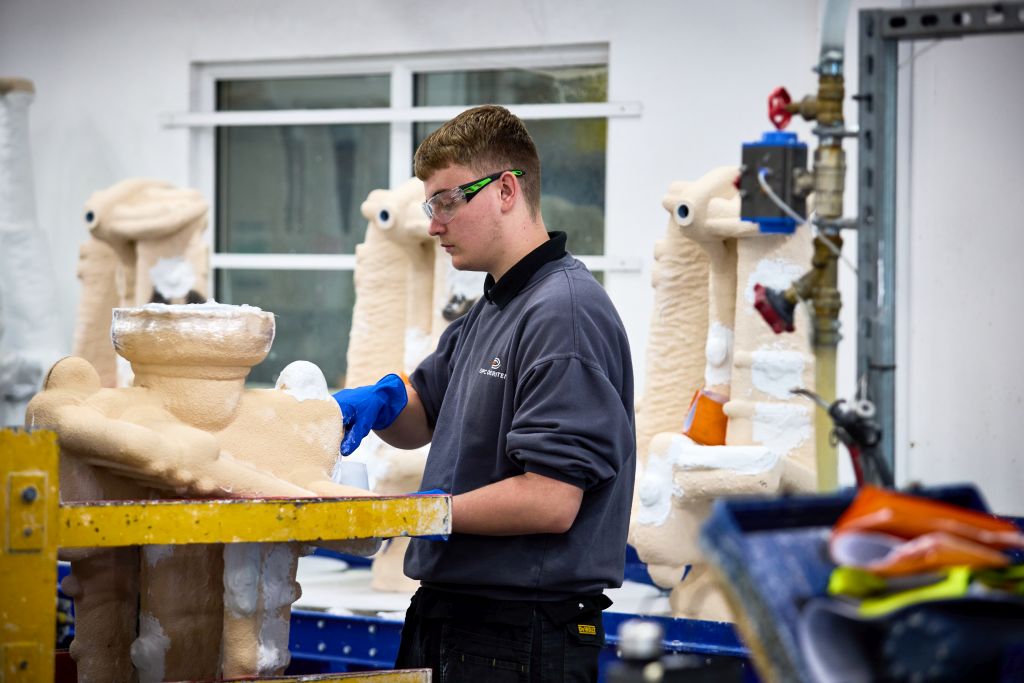
We’re growing at a fast pace at present. So we had to pull some of the continuous improvements people out into the expansion in Deritend, UK, for example, and they ended up running that project for 12 months while we added another 50,000 square feet onto the building. They're back in situ now.
The thing with continuous improvement people is that they tend to be in demand. So even within their own facility, they’re running Kaizen events, working on continuous improvement activities, special projects, and other roles and demands. So, this has been a challenge for us, and we continue to look for good continuous improvement people.
We've added two more people in the UK in the last three months, and we added a couple in the US as well. I have also just signed off a requisition to create a new casting excellence team, which will be five resources just dedicated to the casting process. We’re in the process of filling those roles, creating a dedicated global team looking at continuous improvement in all our casting sites.
How far along the ‘roadmap’ is Doncasters to achieving its aim?
When I look at a business, I think about engines. And you need two. If you treat Doncasters as an aircraft, there's a throughput output engine which is going really well. By next year we'll have doubled in size since 2020, so the output engine has done excellently. We're ramping up, we're adding capacity in line with our customers’ needs.
Our continuous improvement engine, which is operational excellence focusing on things like scrap, variable costs and real productivity, well that's a never-ending journey, because every day you try to get better, technology improves, manufacturing techniques improve, and equipment improves. So we'll never stop doing that.
If I was to put a percentage on it, I’d say we were only 40% along our journey on the continuous improvement side, so there’s lots of runway still to go there but it's not as if we don't know what to do, it's a matter of continuing to drive that daily drumbeat on excellence, which we're doing.
With these additional resources we’re bringing on stream, such as the casting excellence team, I believe we'll see a further improvement next year. But it's a never-ending story; as soon as you think you've got there, technology improves, manufacturing techniques improve, and so we'll go again. This isn’t a stake in the ground, such as ‘in three years’ time we’ll be done’, it’ll just never end. And that’s how it should be.
What significant, tangible benefits or savings do you foresee the Doncasters Way providing for the company and is it sustainable?
Sustainable, absolutely! In terms of tangible benefits, we've seen big improvements in our scrap levels. We've seen big improvements in our productivity. We've seen big improvements in our variable cost. That's all contributing to our bottom line and every facility has improved in that aspect.
There's lots of runway still to go. We will continue to drive improvement and it's very tangible: throughput times, customer delivery, customer quality, internal scrap, productivity and revert costs. All of these have improved significantly via this programme in Doncasters over the last three years.
Is there a culture within the company from the top down that is committed to your changes?
Absolutely. Any change programme comes up against resistance initially and Doncasters hadn't really changed in a long time - and needed to change. It took a while to get momentum into the company. Developing the new strategy back in 2021 and rolling that out in May that year, has really given us impetus.
We've made great progress. Everyone in the company's been educated about what the strategy is and as you know, continuous improvement is one of our key pillars in that strategy.
At the start I would say that we didn't have the resources or the skills in a lot of the sites to do and embrace the Doncasters Production System, which we've now addressed. The more people get educated about the approach and how this is a good thing for their sites, the more it's been embraced.
The fact that we run Kaizen events with people from the offices, leadership team and the shopfloor in a combined approach, is a great way for everyone to bond as a team and we're seeing real benefits from that.
What management challenges do you think Doncasters and other aerospace businesses will face in the future if they are to remain competitive?
On the aerospace side, we made a strategic acquisition back in the summer of 2022 to give us a low-cost footprint. We have factories in Mexico, India and China now. I believe labour is becoming a big challenge for our industry. It's not a Doncasters problem; it's a wider industry problem. And it's not just an aerospace problem; it's industrial factories in general that are finding it challenging to hire staff now because the digital age is upon us.
The fact that we've got these low-cost locations now and the fact there's an abundance of labour supply in these locations will really set us up for success. We are in the process of converting our Mexicali facility for example in Mexico from an automotive plant into an aerospace plant to support our US facilities.
We expect our Indian factory to ramp up over the next 24 to 30 months and to start making its first aerospace parts. We'll move the work to where the labour force is if it becomes a constraint and obviously to help us in our higher cost locations, we'll use automation everywhere we can.
With technical expertise spanning nearly 250 years. Doncasters has been there, seen it, done it. Will the company still be around in 250 years?
Doncasters’ future for the long term is very secure. We have nearly doubled in size since 2020. Our profitability has drastically improved. We've attracted some great people into our company; it's in safe hands. Every site has a path to grow significantly and be profitable and our customers are backing us up with orders.
I genuinely believe Doncasters has turned a corner since 2020 and I don't see any reason why it can't be here for the next 50 years, at least! Doncasters is in great shape.
Consider a free digital subscription
If you find this article informative, consider subscribing digitally to Aerospace Manufacturing for free. Keep up to date with the latest industry news in your inbox as well as being the first to receive our magazine in digital form.


